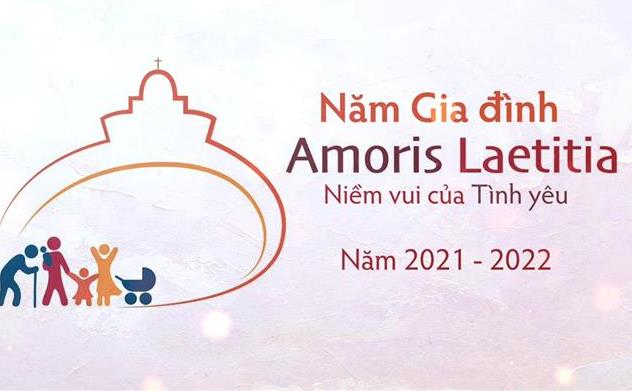31 Sunday of the Year B
Dt 6:2-6; Heb 7:23-28; Mk 12:28-34
Reading love novels or watching love movies, people tend to think love is romantic. Signs expressing love between characters in those movies or novels seem to be romantic and poetic.
 People incline to think of love as a fond feeling of warmth and affection, an attractive feeling between two persons of the opposite sex. People write about love stories, read love stories and paint love stories. Others romanticize love with immortal poetry; still others set love in music.
People incline to think of love as a fond feeling of warmth and affection, an attractive feeling between two persons of the opposite sex. People write about love stories, read love stories and paint love stories. Others romanticize love with immortal poetry; still others set love in music.
However, the concept of love in Christianity is different from our traditional concept of love. In today’s Gospel, one of the scribes asked Jesus: Which is the first of all the commandments (Mk 12:28)? In reply, Jesus said: You shall love the Lord your God with all your heart, with all your soul, with all your mind and with all your strength (Mk 12:30). That is the quotation from the book of Deuteronomy chosen for the Old Testament reading today (Dt 6:5). So how is our love for God?
The starting point for our love for God is our awareness of his presence in our lives, in the beauty of nature, in the wonder of God’s creation, and in the innocent face of babies. The second point for loving God is to obey his commandments as Jesus tells us: Anyone who loves me will be true to my word (Jn 14:23).
So what does it mean to love God with all our heart, with all our soul, with all our mind and with all our strength? This is the Jewish phrase of speech to express the totality and wholeness of love and it means to love with the whole person. It is not necessary to analyze how and when we love God with all our heart, when with all our understanding, when with all our strength.
Then Jesus continues to teach the second commandment: You shall love your neighbor as yourself (Mk 12:31).This time Jesus quoted from the book of Leviticus (Lv 19:18). These two important commandments can be summarized in one double Commandment of love as Saint John points out: One who loves God must love his neighbor (1Jn 4:20). In order to experience the triple love for God, neighbor and self, one must be:
(1). Aware of his weakness and sinfulness before God.
So how can we be aware of our weakness and sinfulness? There are some certain sins, which one did not consider sinful in the past. After a good retreat with preparation, after a pilgrimage with prayer, after the recovery of a serious illness, or after a talk with a spiritual director or after an involvement in a renewal, we can be aware of our weakness and sinfulness. Why after the recovery of a serious illness, are we aware of our weakness and sinfulness?
The answer is after the healing of our sin, we are aware of God’s power and love. When Saint Peter had seen a catch full of fish, he was aware of God’s power and his sinfulness, exclaiming: Leave me, Lord. I am a sinful man (Lk 5:8).There are some deeds, which people did not consider as sins in the past. When they are told what they did were sins and they themselves admitted they were sins, they repented. After a gift of repentance and sorrow had awakened them, they felt hungry spiritually. Now nobody had to tell them what to do like praying or going to church, or reading the bible, or helping others. They took initiative to do those things.
Since they have become aware of their sins, they repented, confessing their sins as to be forgiven. In order to be aware of our sins and to stir up the spirit of repentance, we must ask for the gift of fear of the Lord: being afraid of displeasing God. This gift of forgiveness will elicit a second gift, that is:
(2).Gratitude to God for his mercy.
These two wake-up calls of awareness of weakness and sinfulness and gratitude to God for his mercy, bring about a third gift, that is:
(3) An experience of joy and closeness to God.
Before that, we could practice our faith as something obligatory, being afraid of sin if we do not. We could practice our faith, but we were still afraid of God, blaming God and resentful of Him. If so, how could we say we loved God with all our heart. Now we can come to God as a friend without being afraid of Him and feeling distant as before. The experience of joy and closeness to God will elicit a fourth gift, that is
(4) Decrease in dispute and confrontation with others.
In our daily life, we find less ill-intentioned talk, less other-directed blame, less false accusation, less insult and slander. The decrease in dispute and confrontation with others
should help us love our neighbors as ourselves. The joy of living our faith also brings about the fifth gift in our relationship with God, that is:
(5) Acceptance of our situation, our limitation and ourselves.
If we are created as good-looking persons with different talents, we thank God. If we are not created as good-looking persons, slow to understand, with irritable temperament, we should learn to accept ourselves and offer to God asking him to transform us. If we do not accept ourselves, our situation and limitation, we can hardly say that we love ourselves. Thus, to love ourselves means to accept ourselves. To love ourselves also means to forgive ourselves for any mistake we might have made.
To love ourselves means to live at peace with ourselves. We can come to church for daily mass and prayer. However, we can still be dissatisfied with ourselves, self-complaining and self-blaming. Toward others, we can talk ill of them, hostile toward them. That kind of piety might be a morbid piety. That kind of love for God might be a morbid love.
So only when we accept our situation, limitation and ourselves with shortcomings and mistakes and offer them to God, can we come to God and others in a peaceful relationship.
Oh Holy Trinitarian God of love!
Pour forth your love into my heart
so that my life is reflected with your love.
I offer to you my situation, limitation and myself,
asking you to correct and transform me if it pleases you.
Grant that I may be satisfied with myself
so that I may come to you and others
with a peaceful heart. Amen.
John Tran Binh Trong



 Every Week God Speaks – We Respond, Cycle A was published Online in the US. The introduction of the book is recorded at “Sách của Tác giả Chủ trương, Column 1.
Every Week God Speaks – We Respond, Cycle A was published Online in the US. The introduction of the book is recorded at “Sách của Tác giả Chủ trương, Column 1.

 Năm Mục Vụ Giới Trẻ 2021. HĐGM ấn định một chương trình Mục vụ Giới trẻ 3 năm với các chủ đề tương ứng: Năm 2020: Đồng hành với người trẻ hướng tới sự trưởng thành toàn diện.
Năm Mục Vụ Giới Trẻ 2021. HĐGM ấn định một chương trình Mục vụ Giới trẻ 3 năm với các chủ đề tương ứng: Năm 2020: Đồng hành với người trẻ hướng tới sự trưởng thành toàn diện. Năm Thánh Giu-se: Nhân kỷ niệm 150 năm Đức Giáo hoàng Pio IX chọn thánh Giuse làm Đấng Bảo Trợ Giáo Hội Công Giáo, Đức Phanxicô đã ban hành Tông thư “Patris corde” – Trái tim của người Cha – và công bố “Năm đặc biệt về thánh Giuse” từ
Năm Thánh Giu-se: Nhân kỷ niệm 150 năm Đức Giáo hoàng Pio IX chọn thánh Giuse làm Đấng Bảo Trợ Giáo Hội Công Giáo, Đức Phanxicô đã ban hành Tông thư “Patris corde” – Trái tim của người Cha – và công bố “Năm đặc biệt về thánh Giuse” từ  Năm “Gia đình Amoris Laetitia” 2021 về “Vẻ đẹp và niềm vui của tình yêu gia đình” do Bộ Giáo Dân, Gia Đình và Sự Sống tổ chức, được Đức Phanxicô khai mạc dịp Lễ Thánh Giuse
Năm “Gia đình Amoris Laetitia” 2021 về “Vẻ đẹp và niềm vui của tình yêu gia đình” do Bộ Giáo Dân, Gia Đình và Sự Sống tổ chức, được Đức Phanxicô khai mạc dịp Lễ Thánh Giuse 
